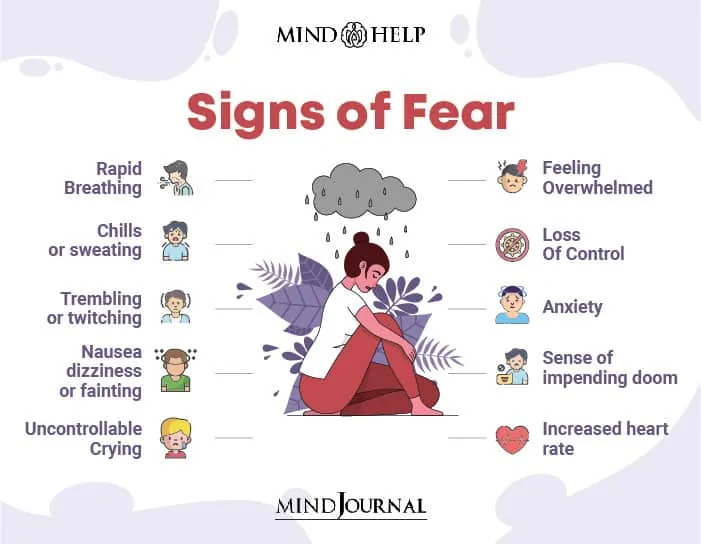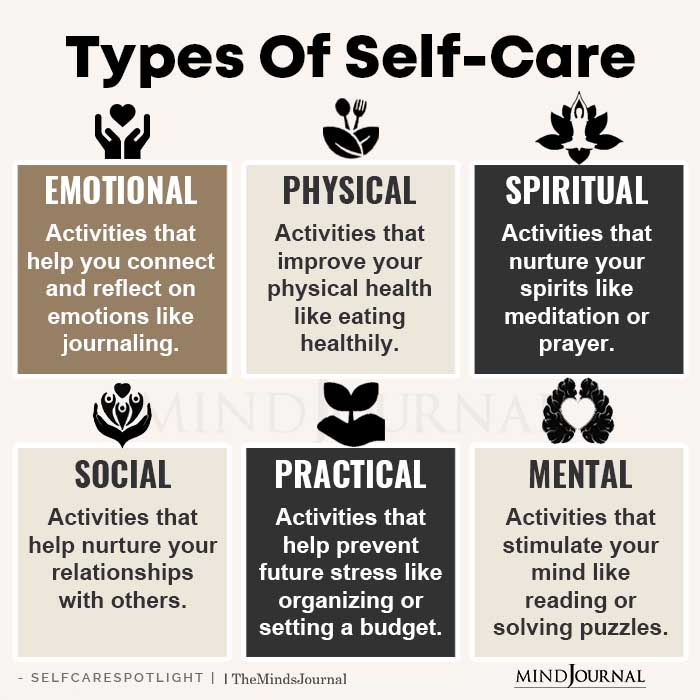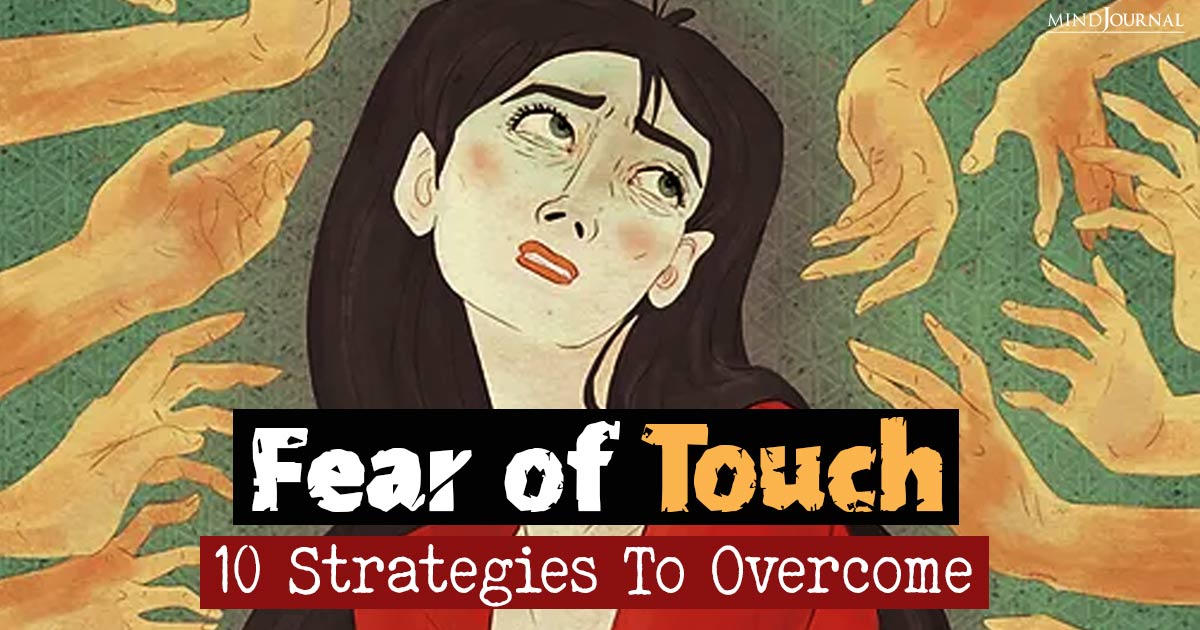In a world where physical touch is an intrinsic part of human interaction, it may be difficult to comprehend that some people have a fear of touch. But what is this fear of touch that plagues some people? And do you think you also feel the same?
Haphephobia, an intense and irrational fear of touch, can have a profound impact on your daily life, relationships, and overall well-being. In this article, we will delve into what is haphephobia, what causes haphephobia, and potential treatments.
Whether you have the fear of people touching you or someone you know is affected by this condition, gaining a better understanding of haphephobia can be the first step towards overcoming it and leading a fulfilling life.
Related: 5 Powerful Ways To Help You Overcome Phobias And Irrational Fears
What Is Haphephobia?
Haphephobia, also known as touch phobia, is a specific phobia characterized by an overwhelming fear of touch. People suffering from this may experience extreme anxiety, panic attacks, and an intense desire to avoid situations where physical contact is likely to occur.
The fear can extend to various types of touch, including handshakes, hugs, or even accidental brushes against the skin.
Here are some more examples of situations that you may find challenging:
- Handshakes
- Hugs
- Personal space invasion
- Medical examinations
- Intimate relationships
- Public transportation
- Social gatherings
Read Revealing The Deepest Phobias: Exploring The Biggest Fear Of Zodiac Signs
Symptoms Of Haphephobia Or Fear Of Touch
- Intense anxiety or panic attacks in situations involving touch.
- Avoidance of physical contact, including handshakes, hugs, or any form of touch.
- Fear of being touched or touching others, even in non-threatening situations.
- Excessive worry or preoccupation with the possibility of physical contact.
- Heightened sensitivity or discomfort to even light or accidental touches.
- Difficulty forming or maintaining intimate relationships due to fear of touch.
- Increased heart rate, sweating, or shortness of breath when confronted with touch.
- Feelings of dread or terror when anticipating or confronted with touch.
- Persistent thoughts or nightmares related to touch.
- Social isolation or withdrawal from situations that involve physical contact.
- Difficulty participating in activities that require physical contact, such as sports or dancing.
- Hypervigilance and constant scanning of the environment for potential touch triggers.
- Emotional distress or tears when faced with touch or the prospect of touch.
- Physical or psychological discomfort when touched, including feelings of disgust or repulsion.
- Impaired daily functioning and quality of life due to the fear of touch.

What Causes Haphephobia?
- Trauma triggers, for example sexual or physical abuse.
- Past incidents of unwanted or uncomfortable touch.
- Witnessing or experiencing violence involving physical contact.
- Cultural or religious beliefs that discourage or stigmatize physical touch.
- Anxiety disorders or other mental health conditions.
- Neurological factors that heighten sensitivity to touch.
- Fear of vulnerability and loss of control associated with touch.
- Negative conditioning or learned behaviours related to touch.
- Developmental or attachment issues in early childhood.
- Family history of anxiety disorders.
How To Overcome The Fear Of Touch: 10 Treatment Options
1. Cognitive-Behavioural Therapy (CBT)
CBT is a widely used therapeutic approach that focuses on identifying and challenging negative thoughts and beliefs associated with touch.
Through gradual exposure therapy, you can learn to reframe your fears and develop healthier coping mechanisms.
2. Exposure Therapy
Exposure therapy involves gradually exposing you to controlled touch situations, starting with less anxiety-inducing scenarios and progressing towards more challenging ones. The goal is to desensitize you to touch over time.
Related: Why You Should Get To Know Your Fears
3. Mindfulness and Relaxation Techniques
Practices such as deep breathing exercises, meditation, and yoga can help you manage anxiety and increase your tolerance for touch. Gradually you will find it a bit easier to deal with your fear of touch.
4. Support Groups
Joining support groups or seeking therapy with others who share similar experiences can provide a safe space for you to express your fears, gain insights, and receive encouragement from others who understand your challenges.
5. Medication
In some cases, medication may be prescribed to you to manage the symptoms of anxiety and panic associated with haphephobia. This should be done under the guidance of a qualified healthcare professional.
6. Virtual Reality Therapy
Virtual reality (VR) therapy is an emerging treatment option for dealing with the fear of touch. It involves using immersive virtual environments to gradually expose you to simulated touch experiences.
This approach allows for a controlled and safe environment to practice and desensitize yourself to touch-related fears.
7. Occupational Therapy
Occupational therapists can play a crucial role in helping you with haphephobia. They can provide guidance on sensory integration techniques and develop personalized strategies to manage touch-related anxieties in daily life.
8. Body-Based Therapies
Therapies such as massage, acupressure, or reflexology, performed by trained professionals, can assist you in gradually becoming more comfortable with touch.
These therapies can be particularly effective when combined with other therapeutic approaches.
9. Self-Help Techniques
Engaging in self-help techniques can complement formal treatment. This may include self-guided exposure exercises, journaling, or using relaxation apps that offer guided meditation and breathing exercises.

10. Building Trust and Boundaries
Healing from haphephobia often involves building trust with others and establishing personal boundaries.
Communicating openly and honestly with loved ones and setting clear boundaries regarding physical touch can help you create a sense of safety and control.
Related: 100+ Types Of Common, Unique and Bizarre Phobias
Conclusion
With understanding, support, and the right treatment plan, people suffering from this condition, including you, can indeed overcome its debilitating effects. By addressing fears, utilizing therapy, and gradually exposing yourself to touch, you can reclaim your life and experience meaningful connections.
Do you think you have a fear of people touching you? Do let us know your thoughts in the comments down below!
Disclaimer: This article is for informational purposes only and is not intended as a substitute for professional mental health advice, diagnosis, or treatment. While we strive for accuracy, we do not guarantee the completeness or reliability of the information provided. Readers should always seek guidance from a qualified mental health professional for any concerns regarding their mental well-being.










Leave a Reply